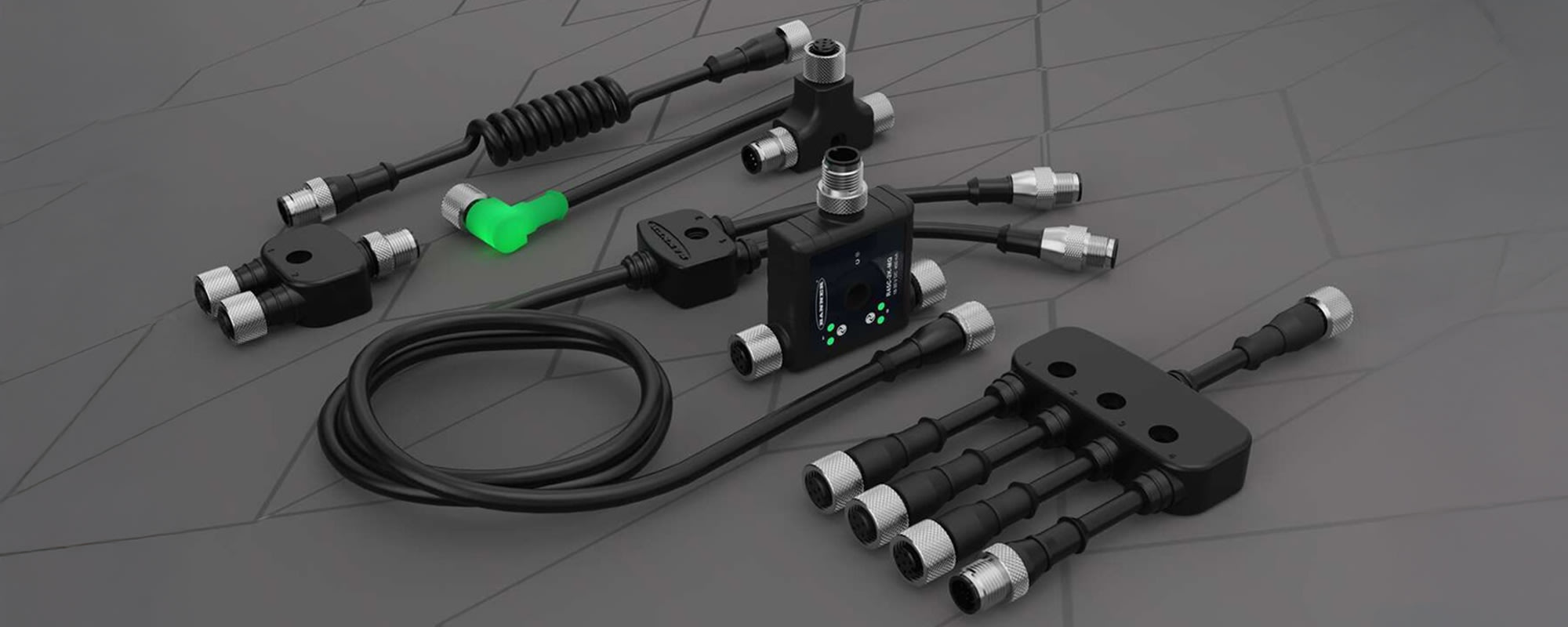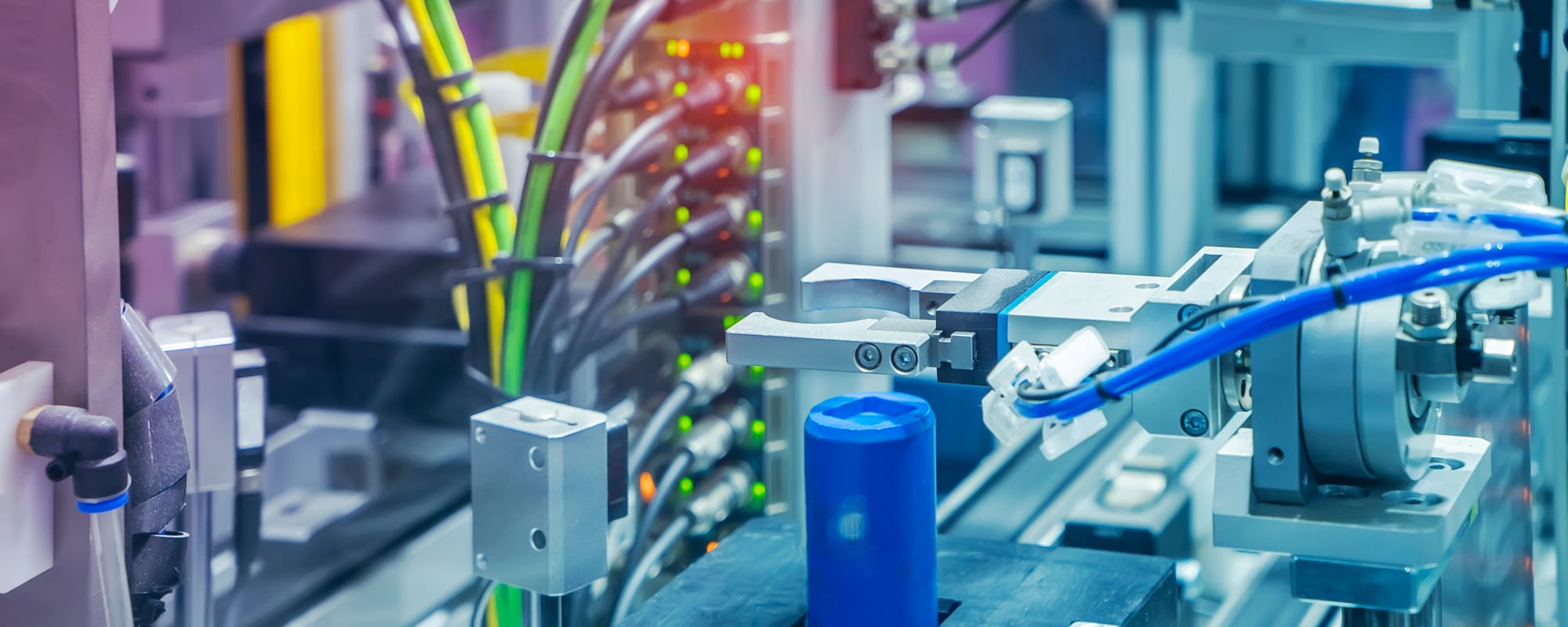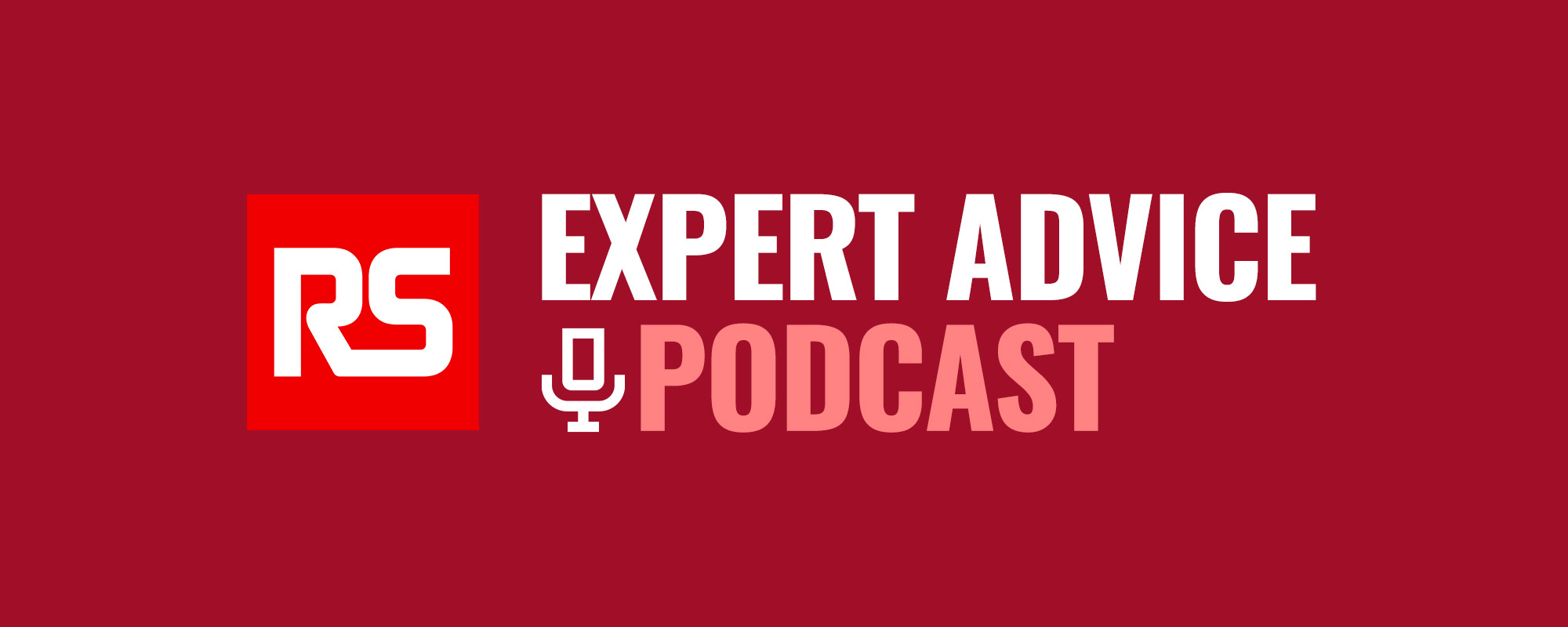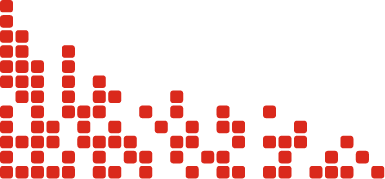June 23, 2023 marks the 10th annual International Women in Engineering Day. To celebrate, RS is proud to highlight three of our amazing women employees engaged in different aspects of the engineering industry.
June 23, 2023, marks the 10th annual International Women in Engineering Day (INWED), which celebrates and shines a light on the amazing work that women engineers are doing all around the world and plays a vital role in encouraging more women and girls to pursue engineering careers. First celebrated in 2014 as a national campaign honoring the 95th anniversary of the U.K.’s Women’s Engineering Society, INWED has since grown to be celebrated globally. The holiday earned the patronage of the United Nations’ Educational, Scientific, and Cultural (UNESCO) organization in 2016 and was first recognized an international holiday in 2017.
Although women’s representation in engineering roles and STEM careers in general is growing, women are still highly underrepresented in both. The 2020 U.S. Census reported that women accounted for just 15% of the engineering workforce and 8% of STEM workers, while a similar 2021 survey by EngineeringUK reported that women accounted for just 16.5% of the engineering workforce in the U.K.
At RS, we continue to build our culture around our inclusion strategy, which focuses on five key priorities: race, gender, LGBTQ+, disability, and wellbeing. We are also committed to ensuring that our organization is authentically and sustainably diverse in order to seek and embrace the very best talent that will help us Make Amazing Happen for a Better World. Our aim is to ensure that each person is empowered to bring their true self to work every day and, while we acknowledge that sustainable, authentic change takes time, we will always champion diversity, inclusivity, accessibility, and representation within our culture.
So, in honor of International Women in Engineering Day 2023, we are proud to highlight three of our amazing women employees engaged in different aspects of the engineering industry.
Sindhura Gogineni, Software Engineering Manager, Americas

When did you know that you wanted to be an engineer?
Growing up, I had so much fun playing with my elder brother and his toy cars. His fascination with understanding the details of building a toy car from scratch with wheels and a motor to power them was truly captivating. It certainly sparked a deep interest in me to explore the world of automobiles, engines, hydraulics, and more.
Thanks to my brother’s influence, I naturally gravitated to the STEM field at a young age. This eventually led me to pursue a bachelor’s degree in electrical and electronics engineering at Jawaharlal Nehru Technological University and a master’s in computer science at Texas A&M University-Kingsville.
While earning my master’s in computer science, I had the privilege of learning from some of the most exceptional professors. They opened my eyes to the wonders of the digital world — video games, computers, and the magic of coding. It was as if I had discovered a new playground for my brain, where creativity and technology merged to make a difference in the world around me.
How did you make it happen?
With this drive, I immersed myself in my studies and expanded my knowledge. I embraced the challenges and complexities of the STEM field, knowing that every hurdle I overcame would bring me closer to making a tangible difference in my life. I sought internships and real-world experiences that aligned with my goals.
Looking back at my journey, I couldn’t be more proud of the path I chose. Each step I took, each project I undertook, became a testament to the belief that education and technology can be powerful catalysts for positive change.
My childhood dream of owning a Corvette may have transformed, but the dreams I hold now are far greater — dreams of a world where education and innovation break down barriers, enabling every individual to build a better life and contribute to a better society.
Did you experience any challenges in your journey and, if so, do you have any advice that might help people facing similar circumstances?
The path to STEM is not easy, and it demands persistence and commitment. Here are a few tips that helped me on my journey:
- Be adaptable. The world of STEM is constantly evolving, so being adaptable is essential. Embrace lifelong learning, stay curious, and be open to new ideas, technologies, and methodologies. Continuously seek opportunities to enhance your skills and stay ahead of the curve.
- Challenge stereotypes and biases. Unfortunately, biases and stereotypes also exist in STEM fields. Use your voice to challenge these preconceptions and advocate for inclusivity and diversity. Stand up for yourself and others, and work towards creating a more inclusive environment.
- Celebrate achievements, big and small. Acknowledge and celebrate your accomplishments along the way. Recognize your progress, no matter how small, and use it as motivation to keep pushing forward.
Remember, each individual’s journey is unique, and while challenges may arise, they also provide opportunities for growth. With perseverance, passion, and a growth mindset, you can overcome obstacles and achieve your goals in the STEM field.
What’s the best project you’ve worked on as an engineer?
I have many to choose from, but if I have to pick, one of my best projects focused on leveraging new technology to generate valuable data that provided immense value to my company and its customers. By implementing cutting-edge tools and platforms, we collected and analyzed vast amounts of data and gained deep insights into customer preferences and market trends.
Utilizing these insights, I developed robust reports that provided actionable information for decision-making. These reports allowed the company to tailor its offerings, deliver exceptional services, and drive innovation, and this customer-centric approach resulted in increased customer loyalty, new customer acquisitions, and significant revenue growth. The project’s emphasis on innovation also helped the company stay ahead of the competition. By identifying untapped opportunities and launching new products and services, we solidified our market position and created additional revenue streams. Overall, the project’s impact on profitability, customer satisfaction, and market leadership made it a groundbreaking initiative for the company’s future success.
If you could meet one STEM icon, living or dead, who would it be and why?
Steve Jobs, the co-founder of Apple Inc., because he revolutionized the world of technology and consumer electronics. His visionary leadership and relentless pursuit of innovation transformed industries and shaped the way we interact with technology today. I would love to gain insights into his creative process, learn about his ability to anticipate and meet consumer needs, his exceptional people skills, and his knack for surrounding himself with the best, and understand his unwavering commitment to excellence. Meeting Steve Jobs would be an extraordinary opportunity to delve into the mind of a true visionary and be inspired by his remarkable journey of entrepreneurship and innovation.
Do you have any advice for women and girls interested in pursuing STEM careers?
Absolutely! Here’s my advice for women and girls interested in pursuing STEM careers:
- Believe in yourself and your abilities — know that you are just as capable as anyone else in STEM.
- Embrace challenges and never fear failure; it’s through overcoming obstacles that you grow and learn.
- Be persistent, stay curious, and never stop learning — your passion and determination will propel you forward in achieving your goals.
- Seek out mentors and role models who can guide and inspire you on your journey.
- Connect with supportive communities and organizations that encourage and empower women in STEM.
Clara Chapman, Product Portfolio Manager, Americas

When did you know that you wanted to be an engineer?
In middle school, I was in an after-school program that helped youths gain early awareness about and readiness for undergraduate programs and explore career opportunities. We visited DeVry University, which would later become my college, and we got to tour one of their labs. It was my first hands-on interaction with an oscilloscope, multimeter, and breadboard. As elementary as they seem now, I was dumbfounded by the fact that level of technology existed and amazed by the capabilities they possessed. This experience elevated my curiosity to a new intensity, and I was determined to get into the engineering field.
How did you make it happen?
My junior year of high school, I missed my SAT exams and dropped out for half a semester to have my daughter. When I returned for my senior year, I had to stay after school for a semester and complete two additional hours of work each day to catch up with my graduating class. Through dedication, I was able to graduate on time and within the top 10 percent of my class.
About a month after I graduated, I applied to the engineering program at DeVry and for a number of grants, scholarships, and student loans so I would be able to attend. After completing mounds of paperwork and taking an entrance exam, I was accepted and began to pursue my electrical engineering degree.
Did you experience any challenges in your journey and, if so, do you have any advice that might help people facing similar circumstances?
When I started college, I was a single mother of two and relied heavily on my family for support. I worked part time at the university as a tutor, attended classes at night, and did homework during my “spare time.” This, coupled with being a minority in a male dominated field, made me feel overwhelmed and exhausted. I worked very hard to prove I was on par with my peers and capable of providing for my kids. To anyone that feels this way, I encourage you to show yourself some grace. You don’t need to prove anything to anyone, and the only opinion that matters is your own. Do your best and know that you are enough.
Do you have any role models, mentors, or heroes in engineering? If so, who and why?
Professor Morris was one of my professors during my senior year in college. He was a great mentor who treated me with respect and challenged me to grow outside of my comfort zone. His classes were difficult but were the best classes I ever took.
What’s the best project you’ve worked on as an engineer?
Being a part of a project that allowed me to build an electrical enclosure from the design phase through to testing was the most rewarding venture of my engineering career to date, as well as the most time consuming. I worked closely with the customer and carefully reviewed their specifications to determine which products to use and the best way to assemble everything. The project required several schematic drafts before building and testing the unit, and it took about six months to get the project out the door. This experience allowed me to apply my skill set in the workplace and taught me a lot about the manufacturing industry.
Do you have any advice for women and girls interested in pursuing STEM careers?
Academically, there are a ton of resources for women who want to pursue a career in the STEM field. Take advantage of them and ask for help when you need it. Also, challenge yourself; it’s not always going to be easy, but it’s worth it. Don’t be afraid or embarrassed to try, and don’t let your current situation limit your future goals. You’ve got this!
Danee Lackey, Product Portfolio Manager, Americas

Tell us about your current role
I am a member of our product management team, which is tasked with understanding the various electrical, pneumatic, and electronic products we sell and aligning those products with our overall strategy and business case. My team works hand in hand with our suppliers’ product managers and engineers to determine which of their products are the best fit for our offer. Our suppliers provide us with new product roadmaps and educate us on the key features and benefits of their new products. Keeping on top of new product designs and understanding their value to the engineering industry professionals we serve is critical to keeping our product offer fresh and relevant for our customers.
What inspired your interest in engineering?
I am curious by nature, and I really admire the creativity that inspires new electrical, pneumatic, and electronic designs. It’s exciting to see products evolve to include new and improved features, as well as new product introductions, and I especially love to be a part of bringing new designs that are better for our environment to market.
How did you end up working in the engineering industry? What roles have you held?
I earned a Bachelor of Science degree in psychology from the University of Texas at Arlington, where I studied topics including behavior and motivation, English, algebra, and calculus, and I have worked in product service and management roles at RS for almost 25 years. When I started at RS, employees in the product management department wore many hats. We didn’t have a content team for catalog development or a supply chain department. So, product managers took on the bulk of those roles. We did have a product services group that served as buyers and helped execute product management tasks, though, and that’s where I started. A year later, I was promoted to Product Manager. Although my degree isn’t in engineering, it set me up for success in the commercial side of this industry. My formal education helped me better understand people and buying behaviors, as well as the formulas used to size automation products, effectively communicate with suppliers, and contribute to growing the RS portfolio and increasing revenue, and over the past 25 years, I have attended hundreds of educational product trainings, both virtual and in person, in addition to multiple hands-on product training sessions at our suppliers’ sites to develop product expertise. I have also learned a lot about our products by working on the catalog pages and dispositioning returns in our warehouse.
Did you experience any challenges in your career journey and, if so, do you have any advice that might help people facing similar circumstances?
Follow your interests and your intuition, and be open-minded about finding your niche in the engineering industry. It’s an expansive industry, so there are many career paths that will allow you to satiate your interests and expand your mind. Be proactive about seeking training opportunities, ask a lot of questions, and learn as much as you can.
Do you have any role models, mentors, or heroes in engineering? If so, who and why?
I am a big fan of the folks behind Festo’s Bionic Learning Network. Some of the robotic creations that have come out of this program are absolutely amazing.
What’s the best engineering project you’ve worked on?
As a hobby, I like to leverage the product knowledge that I’ve gained by working with supplier product managers and engineers for 25 years — and have expounded upon by watching various educational engineering videos online — to develop kinetic sculptural projects that incorporate pneumatic, electric, and electronic components. For example, I often use pneumatic actuators and cylinders, electric actuators, mini servomotors, roller lever valves, air pilot valves for movement and Arduino Uno boards and miniature MP3 players for low-cost sound effects. My creations have included a moving plague doctor I made as a tribute to the industrial revolution, a Donald Trump pneumatic popup, a pumpkin head with moving glasses, a lizard with a moving tongue, a Christmas scene with porch pirates, a delivery van, and a frantic homeowner that all moved, a turtle that crawled toward a strawberry, a doll that rose up out of a flower arrangement, a bird that flapped its wings, a king that came out of his castle to survey his land, a dog that moved its head, ears, and tail, and a dancing reindeer. Some of my projects were inspired by a desire to try out the actuators and motors I was learning about, some were inspired by a desire to try out different control methods, and some were inspired by educational videos found on the web, and especially those related to Arduino.
If you could meet one STEM icon, living or dead, who would it be and why?
Massimo Banzi and David Cuartielles created Arduino, and I would really like to give them a big “Thank you!” for creating a board that has proven to be so useful for so many.
Do you have any advice for women and girls interested in pursuing STEM careers?
Dare to be different. Be persistent about pursuing the things you want to learn about. Consider learning about Arduino, as it’s a great and inexpensive way to learn about controls and create fun projects, and have fun doing what interests you.
Start or Further Your STEM Career at RS
If you or a woman you know is interested in pursuing a career path in the engineering industry, we encourage you to take a look at our current openings. Our people, everyone who works for us, makes a difference, and our benefits include several personal development opportunities, including education reimbursement, a mentorship program, virtual learning opportunities, and lean competency system training. So, at RS, you can expand your mind and grow your skills while engaging in the engineering industry and helping to Make Amazing Happen for a Better World.







